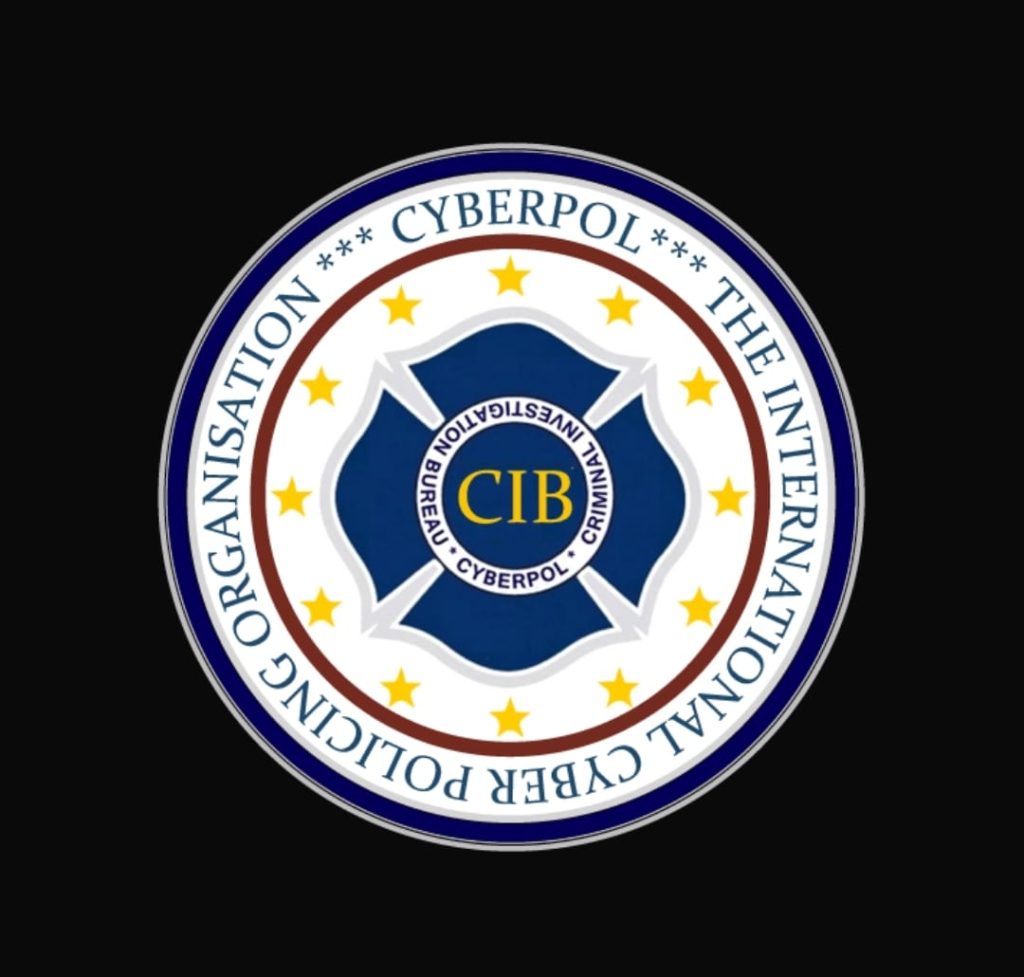CYBERPOL Responds to Pavel Durov’s Arrest: A Broader Issue of Cybercrime, Corruption, and Selective Justice
Paris, France – August 25, 2024 – The arrest of Pavel Durov, the Russian tech entrepreneur and founder of Telegram, at Paris-Le Bourget Airport has sent shockwaves across the tech and cybercrime communities. Durov, who has long been a controversial figure due to his commitment to privacy and freedom of speech through his encrypted messaging platform, was detained by French authorities on Saturday. According to reports, the French government issued an arrest warrant citing insufficient moderation on Telegram, which they claim has allowed the platform to become a haven for criminal activities. Durov is set to appear in court on Sunday evening, where he will face charges that could have significant implications for the future of encrypted communication services.
The arrest has drawn sharp criticism from various quarters, but perhaps none more vocal than CYBERPOL, the International Cyber Policing Agency established under Royal Decree WL22/16.595 and functioning with a mandate under Treaty EST124 of the Council of Europe. CYBERPOL President Ricardo Baretzky did not mince words in his response to the arrest, questioning the motives behind the French authorities’ decision and raising concerns about broader issues of selective justice, corruption, and the role of major tech companies in facilitating cybercrime.
The Charges Against Durov: A Deep Dive
The official reason for Durov’s arrest, as stated by the French authorities, centers on Telegram’s alleged failure to adequately moderate content on its platform. Telegram, with its end-to-end encryption and relatively lax moderation policies, has been criticized by various governments and organizations for providing a space where illegal activities, including drug trafficking, child exploitation, and terrorist communication, can occur with little oversight.
The French authorities argue that this lack of moderation directly contravenes international laws, particularly the Budapest Convention on Cybercrime, which France ratified in 2006. The convention, which seeks to harmonize national laws on cybercrime and improve investigative techniques, obliges member states to ensure that service providers under their jurisdiction cooperate with law enforcement in monitoring and preventing criminal activities.
In the eyes of French officials, Telegram’s operations are in direct violation of these obligations. The arrest warrant reportedly accuses Durov of failing to take adequate measures to prevent his platform from being used by criminals, effectively making Telegram complicit in these activities. If found guilty, Durov could face severe penalties, including substantial fines and possibly even imprisonment.
CYBERPOL’s Stance: The Problem of Selective Justice
In a statement issued shortly after the news of Durov’s arrest broke, CYBERPOL President Ricardo Baretzky expressed deep concern over what he described as the selective application of justice. Baretzky pointed out that while Telegram has indeed been used by criminals, it is by no means unique in this regard. He noted that other major tech companies, including Facebook, Google, and WhatsApp, have also been used as platforms for criminal activities, yet they have not faced the same level of scrutiny or legal action.
“What about others? Facebook, Google, WhatsApp, and many more are all in contravention of the Budapest Convention on Cybercrime, aiding organized crime, and yet France has singled out only Telegram,” Baretzky said. “Maybe it’s because it sounds too much Russian?”
Baretzky’s remarks highlight a broader issue of perceived bias in the enforcement of cybercrime laws. By targeting Durov and Telegram, the French authorities may be seen as engaging in selective justice, where certain individuals or companies are prosecuted more harshly than others for similar offenses. This, in turn, raises questions about the underlying motivations behind Durov’s arrest and whether geopolitical factors, such as his Russian nationality, have played a role.
Corruption and Taxation: A Complex Web
Baretzky also touched on another controversial issue in his statement: the potential role of corruption and economic interests in Durov’s arrest. He suggested that France’s decision to target Telegram might be influenced by the country’s broader economic relationship with tech companies, particularly in terms of taxation.
“Corruption is at play whilst France is receiving huge sums of money in its taxation of others, yet it receives relatively low taxes, if any, from Telegram,” Baretzky said. This statement implies that France may have economic incentives to go after Telegram while turning a blind eye to the activities of other tech giants who contribute more significantly to the French economy.
The issue of taxation has been a contentious one in France, particularly with regard to American tech companies like Google, Apple, Facebook, and Amazon, collectively known as GAFA. France has been at the forefront of efforts to impose higher taxes on these companies, arguing that they do not pay their fair share relative to their revenue generated within the country. However, these efforts have often been met with resistance, both from the companies themselves and from the United States government, which views such taxes as unfairly targeting American businesses.
In this context, Baretzky’s remarks suggest that France’s decision to arrest Durov may be influenced by a desire to pressure Telegram into paying more taxes, or at least to demonstrate that the country is willing to take strong action against companies that do not contribute sufficiently to its coffers. This, in turn, raises further questions about the motivations behind the arrest and whether Durov is being used as a scapegoat in a broader economic and political struggle.
The Implications for Cybersecurity and Privacy
Durov’s arrest and the subsequent response from CYBERPOL have significant implications for the future of cybersecurity, privacy, and the role of tech companies in the digital age. If Durov is convicted, it could set a precedent for holding tech CEOs personally accountable for the actions of their platforms, potentially leading to a chilling effect on innovation and the development of new communication technologies.
On the other hand, if the charges against Durov are seen as politically motivated or based on selective enforcement, it could undermine trust in international cybercrime laws and contribute to a growing perception that these laws are being used as tools of geopolitical influence rather than instruments of justice.
Baretzky’s comments also raise important questions about the balance between privacy and security in the digital age. Telegram’s commitment to end-to-end encryption and user privacy has made it a popular platform for those who value their online freedom, but it has also made it a target for governments seeking to combat cybercrime. The challenge for policymakers and law enforcement agencies is to find a way to protect the public from online threats without infringing on the rights of individuals to communicate privately and securely.
A Broader Conversation on Cybercrime
The controversy surrounding Durov’s arrest also highlights the need for a broader conversation on how to effectively combat cybercrime in an increasingly interconnected world. As Baretzky pointed out, Telegram is far from the only platform used by criminals, and any effort to address the issue of cybercrime must take into account the role of all major tech companies, not just those that are politically or economically convenient to target.
CYBERPOL has long advocated for a more comprehensive and coordinated approach to combating cybercrime, one that involves not only law enforcement agencies but also the tech industry, civil society, and international organizations. Baretzky’s remarks suggest that the current approach, which often focuses on high-profile arrests and legal actions, may be insufficient to address the root causes of cybercrime and could even exacerbate the problem by driving criminal activities further underground.
Looking Ahead: The Future of Durov and Telegram
As Durov prepares to face the French courts, the outcome of his case will be closely watched by tech companies, cybersecurity experts, and privacy advocates around the world. A conviction could have far-reaching consequences for the future of encrypted communication services, potentially leading to increased pressure on other platforms to compromise on user privacy in the name of security.
However, the case also presents an opportunity for a broader dialogue on the role of tech companies in the fight against cybercrime and the need for a more balanced approach that respects both the need for security and the rights of individuals to communicate freely and privately.
CYBERPOL’s response to Durov’s arrest underscores the complexity of these issues and the challenges that lie ahead in addressing them. As the world becomes increasingly digital, the need for a fair, transparent, and effective approach to combating cybercrime has never been more urgent. Whether Durov’s arrest will serve as a catalyst for such a discussion or whether it will simply become another chapter in the ongoing struggle between privacy and security remains to be seen.
For now, one thing is clear: the arrest of Pavel Durov has opened a new front in the global debate over cybersecurity, privacy, and the role of tech companies in the digital age. How this debate plays out will have profound implications not only for Durov and Telegram but for the future of the internet itself.





